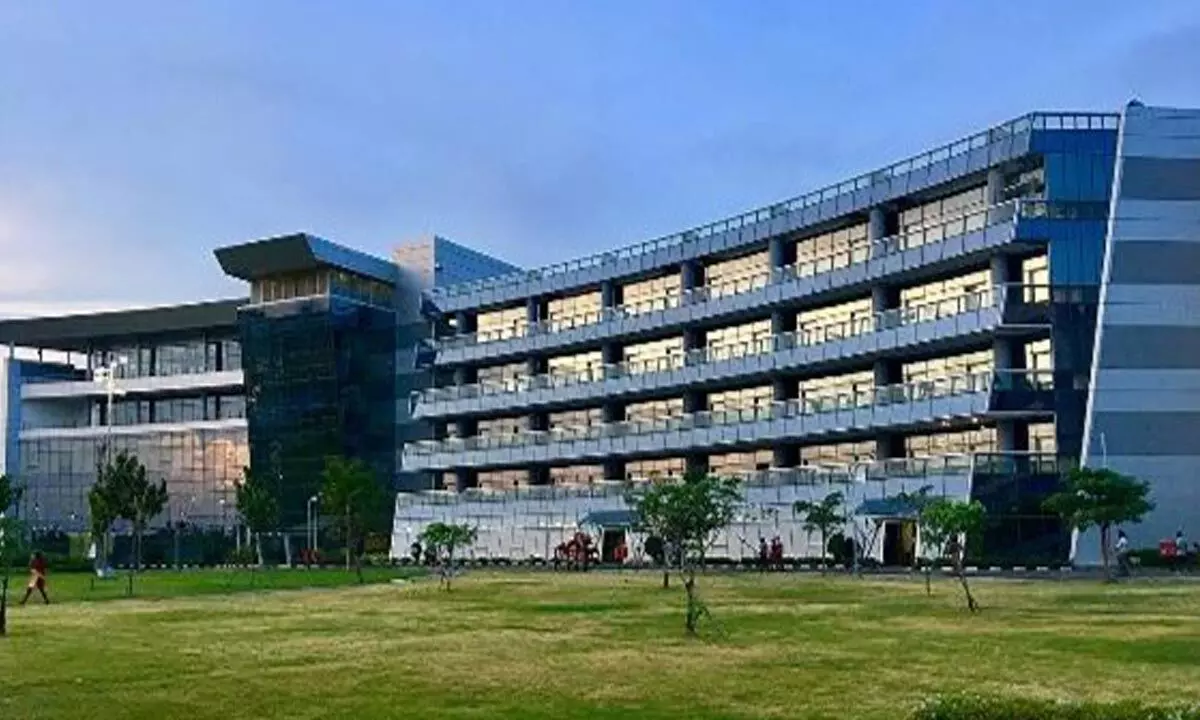Tech sector pins high hopes
Looking forward to a period of growth and stability propelled by new supportive policies and provisions
image for illustrative purpose

• Provide more lenient and flexible tax and compliance to startups to remain in India
• Invest in cybersecurity rather than doing damage control after a cyberattack
• Incentivise low carbon path as well as contribution to the carbon-free workplaces
• Special attention on EV manufacturing with uniform 5% GST on spare parts and components
Vijayawada: With India emerging as a global hub for digital capability and pioneer in rolling out 5G services, the tech sector, by and large, is looking forward to a period of growth and stability propelled by fresh policies and other provisions from the upcoming budget announcements.
The industry has been a propellant for positive change for years, as it braces itself up for new ones post-Covid-19. During a chat with Bizz Buzz, a few from the technology front with a proven record exuded confidence that the budget will have announcements for further consolidation of digital capabilities, E-mobility segment and arresting carbon footprints.
Vinod Nair, Global VP of Sales and General Manager, Noventiq India said, "2023 budget will be crucial for the IT industry as many headwinds globally impact one of India's largest employers. In the past decade, Indian IT startups have preferred to have their corporate headquarters in the US or Singapore due to those countries' favourable tax and compliance environments. If this year's budget addresses this by providing more lenient and flexible compliance to startups, it will attract more investments and ensure that homegrown IT startups remain in India."
He said additionally, the use of digital technology and the prevalent geo-political situation has created opportunities for cybercriminals waiting to exploit vulnerabilities. "We have seen a significant rise in cyberattacks, resulting in the loss of confidential data and money for businesses. Therefore, cybersecurity must be a top priority from the very beginning of digitisation to ensure digital transformation. The government should look at the loss of money to cybersecurity as a loss not just to businesses but to the government."
Nair said the future belongs to Digital India, and India can secure it by investing in cybersecurity rather than doing damage control after a cyberattack. As India prepares to become more digitally literate, the technology sector must strengthen the nation's defences against cyber-attacks by improving data protection and having a much-stronger policy in place for all sectors.
According to Raj Sivaraju, President of APAC, Arete, India's economy is rapidly advancing and will play a significant role in boosting the global economy. The country's technology industry will attempt to identify the cybersecurity investment necessary for the tech sector as the government is scheduled to propose its budget for FY2023–24.
With the rapid implementation of technology initiatives and programs, the lowering of administrative backlog, and inclusive development in 2023, the cybersecurity industry is expected to generate $2.37 billion in revenue. Security services is the market's biggest category with a $1.19 billion market volume anticipated in 2023, he pointed out.
Sivaraju said by 2027, the market is projected to generate revenues with a compound annual growth rate (CAGR) of 14.61 per cent, amounting to $4.09 billion. The country's IT industry will closely monitor the spending on requirements for digital public infrastructure, capability building, and incentives for enhancing cybersecurity services.
Shailendra Singh Rao, MD and Founder of Creduce said, the budget needs to address the lack of clarity on the carbon market for sustainable practices in India across multiple sectors. The broad expectation is to provide stimulus to renewable energy efforts as well as light the way forward for the entry of medium and smaller players to contribute to our climate change efforts.
"Its high time the budget incentivizes the low carbon path as well as contribution to the carbon-free workplaces. This budget would further need to define a better roadmap to include the larger chunk of farmers in the gamut by educating and enabling them to contribute towards climate change with their agricultural practices. Not only will that bring a large chunk into the climate change role but also offer additional sources of revenue for them. Clearing a policy and setting up a carbon exchange too should be seen as a priority during the budget," he stated.
Himanshu Raghuvanshi, Co-Founder and COO of CapGrid said, the budget should focus on creating consumer demand and growth for the sector. The budget must be addressing the current taxation structure and necessary stimulus for maintaining growth momentum.
He said EV manufacturing should be given special attention with the uniform 5 per cent GST on spare parts and components. Moreover, there needs to be an extension of subsidies under the FAME II scheme since the validity of FAME II is set to expire on March 31, 2024.

